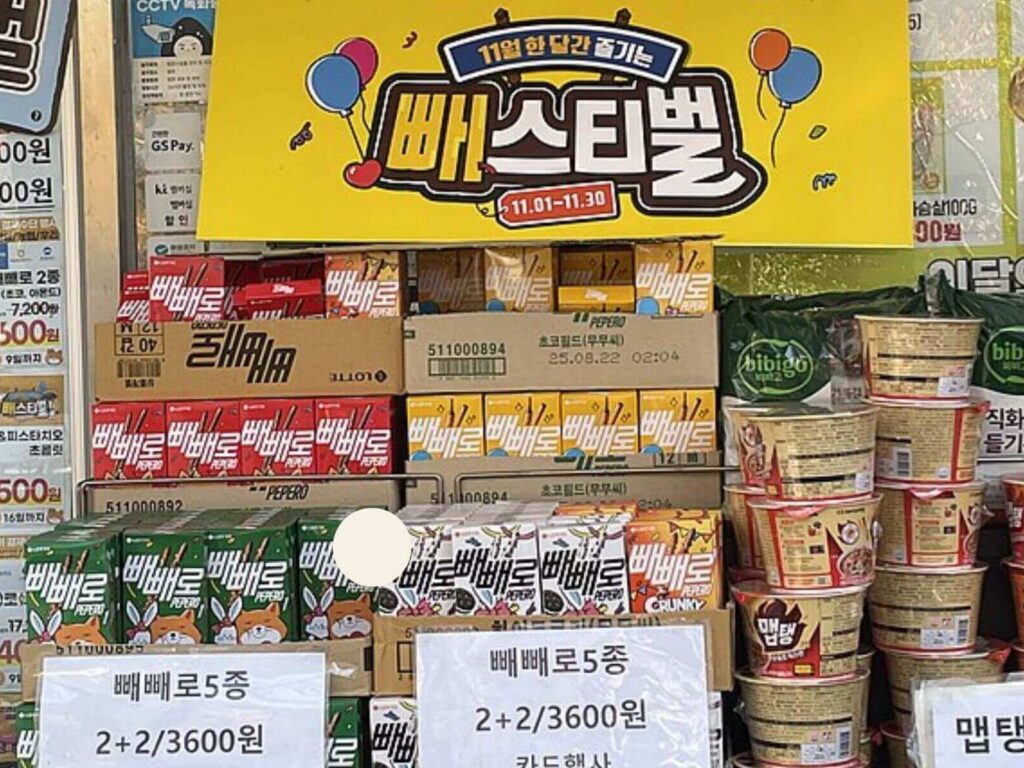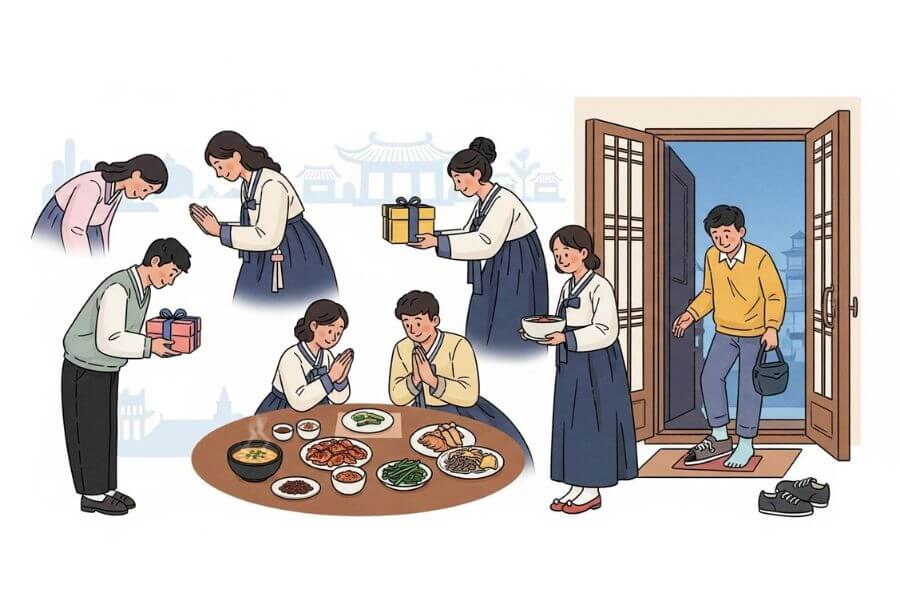South Korea’s work culture is often praised for being fast, efficient, and incredibly team-focused. It’s one of the reasons the country has managed to build global giants like Samsung, Hyundai, and LG while staying competitive in industries that move at lightning speed. But what exactly makes Korean workplaces so strong? What habits keep everything running smoothly and help teams stay connected?
In this guide, we’re diving into 10 Korean work habits that play a huge role in shaping their strong work culture. And instead of a dry breakdown, we’ll walk you through each one, including the behind-the-scenes of Korean office life.
1. The Famous “Ppalli-Ppalli” Mindset
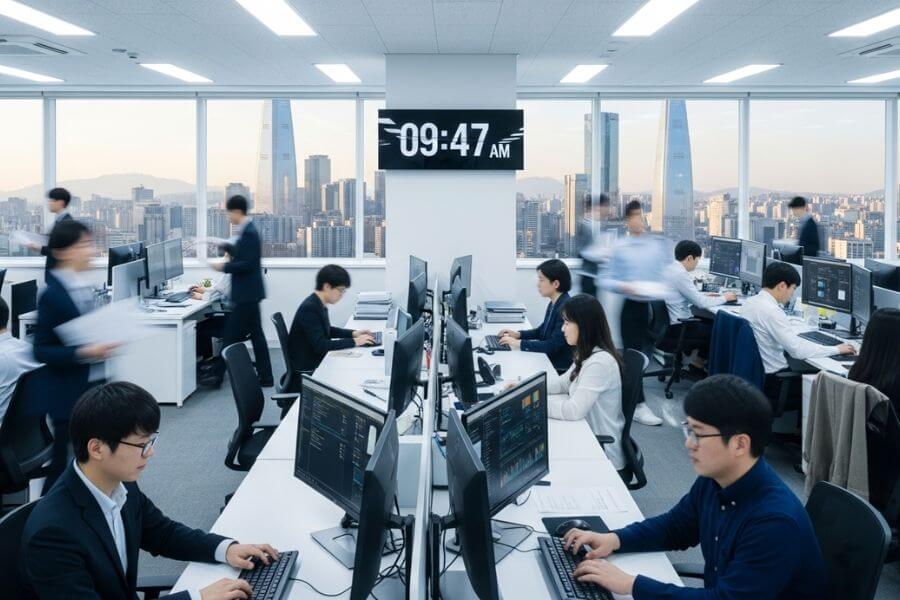
If there’s one phrase that captures Korean workplaces perfectly, it’s ppalli-ppalli, aka “hurry, hurry.” But this isn’t about rushing blindly or cutting corners. It’s more about keeping things moving, staying sharp, and making sure tasks don’t sit untouched.
Koreans naturally respond quickly, take action right away, and prefer to solve problems before they grow into bigger issues. It often feels like the whole office is synced to the same fast-paced rhythm. This habit has deep historical roots, especially in Korea’s rapid post-war development, but today it simply helps teams stay productive and forward-thinking.
For outsiders, it can feel intense, but for Koreans, it’s just the way things get done efficiently.
2. Team Comes First

In Korean workplaces, the team really does come before the individual. Instead of focusing on personal achievements or fighting for individual credit, most people try to keep the group functioning well. This mindset comes from the cultural value of jeong, a sense of connection, loyalty, and shared responsibility.
You’ll see this in the way coworkers help each other without hesitation, share what they know, and step up when someone’s overloaded. Big decisions often get made with group input, and successes are celebrated together. The vibe is very “we’re in this as one,” which helps create an extremely supportive work environment.
3. High Respect for Hierarchy

Hierarchy still plays a major role in Korean companies. Job titles, seniority, and rank all influence how people interact and even how they speak. This structure isn’t about limiting people; it’s more about keeping communication clear and respectful.
Junior employees typically check with seniors before making big moves, and formal language is used to show politeness. On the flip side, seniors are expected to mentor, guide, and look out for juniors. It’s a give-and-take relationship that keeps things orderly.
While younger companies are slowly adopting flatter structures, the traditional respect for hierarchy still shapes many decisions and workflows in Korean offices.
4. Strong Work Ethic Above and Beyond

Korean workers are known for being extremely dedicated. Whether it’s double-checking details before sending a report or staying a bit longer to perfect a presentation, there’s a deep sense of pride tied to doing things well.
This work ethic goes beyond just “working hard”; it’s about being thorough, committed, and reliable. Many Koreans see effort and persistence as core values, so giving your best isn’t just expected; it often feels natural.
This mindset is one reason Korean companies consistently produce high-quality results across multiple industries.
5. Nunchi: Mastering the Art of Reading the Room

“Nunchi” is one of the most uniquely Korean work habits, and honestly, it’s fascinating. It basically means being aware of the atmosphere, picking up on unspoken cues, and understanding what people need without them having to say it.
Someone with good nunchi knows when to speak up or when to stay quiet, when their boss is stressed, or when a coworker could use a hand. It’s like emotional intelligence but with a cultural twist.
This skill keeps the workplace smooth and harmonious. Instead of conflicts exploding, people can sense tension early and adjust their behavior. It’s an underrated but powerful habit that keeps the team functioning well.
6. Emphasis on Continuous Improvement

Korean workplaces put a big emphasis on improving constantly. Whether it’s adopting a new tool, reorganizing a workflow, or polishing skills through extra learning, Koreans tend to stay proactive about growth.
This mindset is part of why the country is known for innovation. Employees never stop refining their craft, and companies encourage them to learn, take workshops, or explore better methods. It’s a culture where the question “How can we do this better?” is always on the table.
The result? A continuous push toward quality, efficiency, and progress.
7. Loyalty to the Company
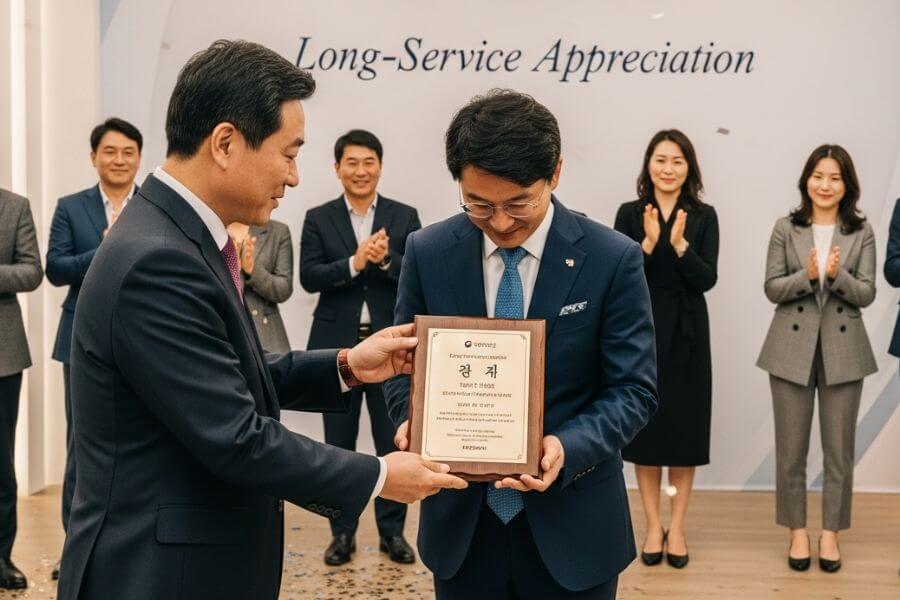
Even though younger generations are becoming more open to job-hopping, loyalty is still a big part of Korean work culture. Traditionally, people stayed with their company for years, even decades, and built their career within that single environment.
This long-term commitment builds trust on both sides. Employees feel invested in the company’s future, and companies provide stability, mentorship, and growth opportunities. It’s a relationship that encourages people to work with a sense of pride and ownership.
While the modern workplace is changing, the underlying loyalty mindset still influences how many Koreans approach their jobs.
8. Building Relationships After Work: “Hoesik” Culture
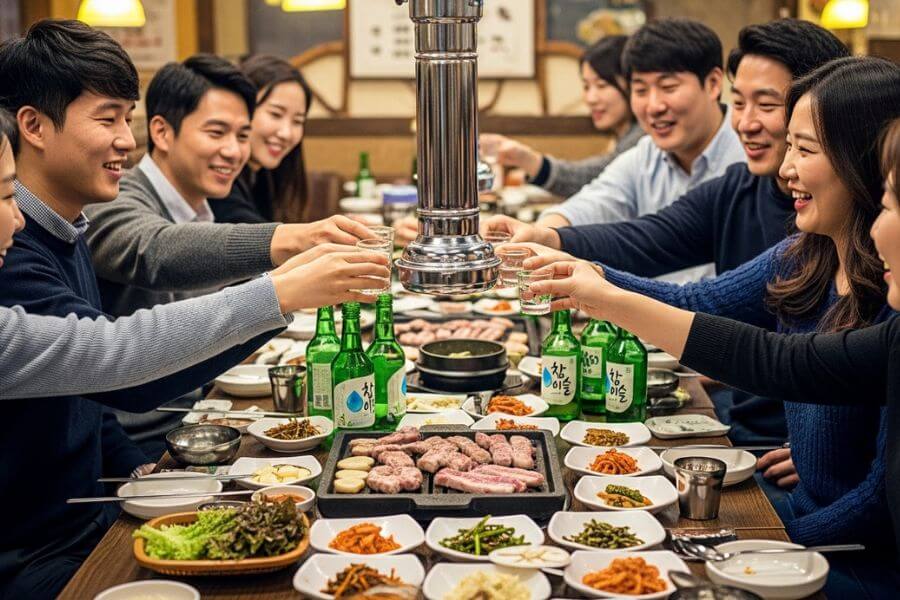
If you’ve heard about Korean work dinners, or hoesik, you probably know they’re a big deal. These gatherings aren’t just about eating and drinking; they’re about bonding.
During hoesik, hierarchy becomes a little more relaxed, people open up, and genuine relationships form. Coworkers who might be quiet at the office suddenly become more talkative, and teams break the ice in ways that make working together easier later on.
Even though younger generations prefer more flexible or optional gatherings (and fewer rounds of drinking!), the purpose stays the same: build connections that strengthen teamwork.
9. Detail-Oriented Mindset

Many Korean employees have an eye for detail that’s almost unmatched. Whether they’re crafting a product, writing documentation, or handling customer service, they go through multiple checks to make sure everything is polished.
This isn’t just about perfectionism; it’s about pride in craftsmanship. Koreans want to produce high-quality work that they can stand behind. It’s one big reason Korea is known worldwide for quality in tech, beauty, manufacturing, and entertainment.
This careful attention to detail builds trust and elevates the company’s professional image.
10. Staying Strong Under Pressure

Koreans are incredibly resilient, a trait shaped by history, culture, and collective experience. This resilience shows up in the workplace as adaptability, perseverance, and the ability to stay calm under pressure.
When deadlines are tight or challenges pop up, Korean teams are quick to regroup, adjust, and push forward. There’s a certain determination sometimes described through cultural concepts like heung (positive energy) and han (deep endurance) that drives people to overcome obstacles.
This mindset helps Korean companies thrive in fast-changing, competitive industries.
Conclusion
Korean work culture is a blend of tradition, speed, teamwork, discipline, and unspoken emotional intelligence. Some habits may feel intense to people from other cultures, but there’s no denying the effectiveness behind them. These habits are a huge part of why Korean companies stay competitive, innovative, and highly respected on the global stage.
Whether you’re planning to work in Korea, collaborating with Korean partners, or simply curious about different work cultures around the world, these habits offer plenty of insights into how Koreans create such strong and cohesive work environments.


